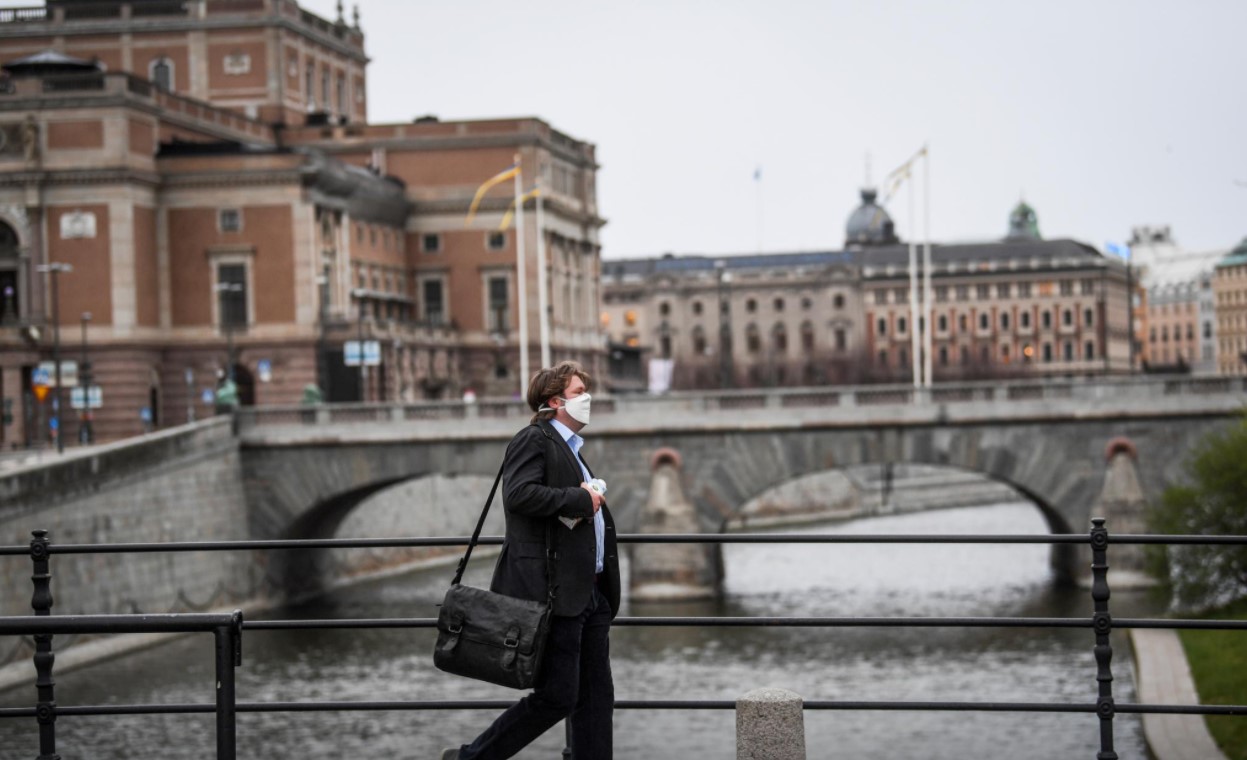Sweden, which has controversially relied on mostly non-coercive measures, struggled to contain an unexpectedly strong second coronavirus wave as the country's monarch on Thursday criticised the nation's failure to save lives.
-I believe we have failed- Sweden's King Carl XVI Gustaf told broadcaster SVT in a preview for a programme summing up the year released Thursday.
Analysts noted the unusually sharp tone of the message from the king, whose power is ceremonial and who typically refrains from commenting on political matters, with some calling it a rebuke of the Swedish strategy.
But questioned by AFP the Swedish Royal Court stressed that the comment was "unpolitical" and referred to the whole of Swedish society.
The capital Stockholm is once again at the epicentre of the epidemic and Lars Falk, a doctor at an intensive care unit at the Karolinska Hospital in Stockholm, told AFP the second wave had hit much harder than they expected.
-We got three different scenarios from the Public Health Agency this summer. We prepared for the worst, and it turned out twice as bad- Falk told AFP.
Others regions are also seeing resources stretched thin.
On Thursday, Sweden's National Board of Health and Welfare said the number of people receving hospital care for Covid-19 was now over 2,500, topping the previous peak in late April.
However, the number of people in intensive care is still only about half the level seen in April.
The total number of deaths associated with Covid-19 in the country of some 10.3 million reached 7,802 on Wednesday, with more than 500 people in the last week and over 1,800 since the beginning of November.
With few coercive measures and no face mask rule, Sweden has stood apart from most countries by relying on citizens' sense of "responsibility" and issuing mostly recommendations -- with no sanctions if they are ignored.
As cases have risen, authorities have urged people to limit social interactions to those in their household or a very small circle of friends.
However, some measures are binding, and on November 24 a ban on public gatherings of over eight people came into force, lowering the number from 50.
Contrary to media reports, the Scandinavian nation never targeted so-called herd immunity as part of its official strategy.
But health officials did argue that the high level of spread in the spring should weaken any second wave.
-I think we will have a relatively low even spread during the autumn, with clusters in different places- state epidemiologist Anders Tegnell told broadcaster TV4 in August.
That seemed to be borne out for a while, as the second wave hit later and deaths remained low in October until numbers started rising again.
Asked about the king's comment during a Thursday news conference, Prime Minister Stefan Lofven said they only affirmed what the government had already conceded.
-Of course the fact that so many have died, can't be considered as anything other than a failure- Lofven told reporters.
But for the strategy as a whole Lofven said that "it's when we are through the pandemic that the real conclusions can be drawn", adding that they had already acknowledged shortcomings in elderly care.
Over 90 percent of coronavirus deaths in Sweden have been among those aged 70 and up, and nearly half of all deaths have been in retirement homes.
The response has also been constrained in part by legislation, including a guarantee on freedom of movement enshrined in the constitution.
The government is preparing a temporary, one-year "pandemic law" it aims to have in place by March 2021, which will empower ministers to limit the number of people in public places and regulate businesses and services by restricting opening hours or even shutting them down.
Among Swedes, support for the strategy and confidence in authorities has generally remained strong throughout the pandemic.
But while a majority still has confidence in the Public Health Agency, a poll published by daily Dagens Nyheter on Thursday showed how the number of people with "high confidence" in the agency had dropped to 52 percent from 68 percent in October.
